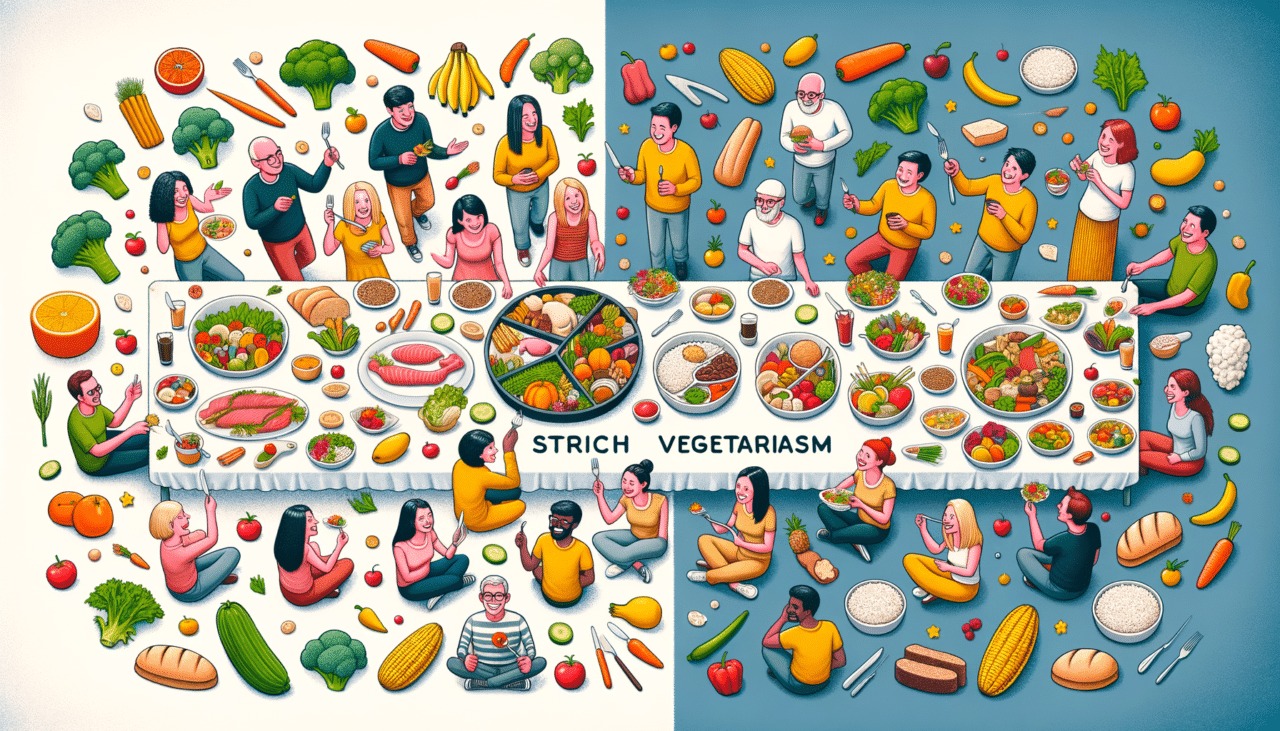When it comes to adopting a healthier lifestyle or making ethical dietary choices, many individuals find themselves choosing between the Flexitarian Diet and Strict Vegetarianism. Both dietary approaches offer unique benefits and challenges, catering to different needs and preferences. In this article, we will explore the key differences between the two, examining aspects such as nutritional value, environmental impact, health benefits, and more. We’ll also provide a detailed comparative table to help you make an informed decision.
What is a Flexitarian Diet?
A Flexitarian Diet, as the name suggests, is a flexible approach to vegetarianism. It primarily emphasizes plant-based foods while allowing occasional meat and animal product consumption. This diet is less restrictive than strict vegetarianism, making it an appealing choice for those looking to gradually reduce meat intake without fully committing to vegetarianism.
Characteristics of a Flexitarian Diet:
- Plant-Centric: The foundation of the diet is built on fruits, vegetables, legumes, and whole grains.
- Moderate Meat Consumption: Allows for limited consumption of meat and animal products, focusing on quality rather than quantity.
- Flexibility: Offers the flexibility to adjust dietary choices based on personal health goals, ethical considerations, or cultural preferences.
- Emphasis on Whole Foods: Encourages minimally processed foods, emphasizing natural and nutrient-dense options.
- Environmental Consideration: Reduces meat consumption, thereby lowering the carbon footprint compared to a meat-heavy diet.
What is Strict Vegetarianism?
Strict Vegetarianism, also known simply as vegetarianism, eliminates meat, fish, and poultry from the diet. Vegetarians may consume dairy and eggs, but some variations like veganism exclude all animal products. This diet is often chosen for ethical, environmental, or health reasons.
Characteristics of Strict Vegetarianism:
- No Meat: Completely excludes meat, fish, and poultry.
- Plant-Based: Primarily focuses on plant-based foods like vegetables, fruits, grains, legumes, nuts, and seeds.
- Dairy and Eggs: May include dairy products and eggs, depending on the type of vegetarianism (lacto-vegetarian, ovo-vegetarian, or lacto-ovo vegetarian).
- Ethical Considerations: Often chosen to avoid harm to animals and reduce environmental impact.
- Health Benefits: Associated with lower risks of chronic diseases such as heart disease, high blood pressure, and certain cancers.
Comparative Table: Flexitarian Diet vs. Strict Vegetarianism
| Aspect | Flexitarian Diet | Strict Vegetarianism |
|---|---|---|
| Definition | Primarily plant-based with occasional meat | Excludes meat, fish, and poultry entirely |
| Meat Consumption | Limited, occasional | None |
| Dairy and Eggs | Allowed | Allowed (except for vegans) |
| Nutritional Balance | Flexible nutrient intake | Requires careful planning for nutrients |
| Health Benefits | Improved heart health, weight loss | Reduced risk of chronic diseases |
| Environmental Impact | Lower than meat-heavy diets | Generally lower, especially veganism |
| Flexibility | High, adaptable | Low, more restrictive |
| Ease of Adoption | Easier for those transitioning from omnivore | Requires commitment and planning |
| Ethical Considerations | Moderate | High, often ethically motivated |
| Cultural Adaptability | High, accommodates various cuisines | Moderate, may require substitutions |
Conclusion
Both the Flexitarian Diet and Strict Vegetarianism offer valuable benefits depending on personal goals and lifestyle preferences. The Flexitarian Diet is ideal for those seeking a balanced approach with the flexibility to enjoy occasional meat. It’s a great stepping stone for those transitioning from a traditional omnivorous diet. On the other hand, Strict Vegetarianism is suited for individuals committed to eliminating meat for ethical, environmental, or health reasons.
In summary, the choice between these two dietary paths should be informed by individual priorities, health goals, and ethical considerations. Whether you choose to embrace the flexibility of the Flexitarian Diet or the commitment of Strict Vegetarianism, both paths lead toward a healthier, more sustainable lifestyle.

Comments (0)
There are no comments here yet, you can be the first!